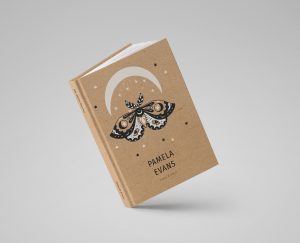

Click here to view our range of personalised journals
Welcome back to our series on personalised journaling! In our previous articles, we delved into techniques for effective journaling, creative prompts for self-discovery, and the use of color, art, and collage. Today, we will explore different writing styles and journaling formats to help you further enhance your journaling experience.
The stream of consciousness writing style involves capturing your thoughts as they flow without filtering or editing. Simply let your pen move across the page or type away on your keyboard, allowing your thoughts to spill out in a continuous stream. This style can be a powerful tool for self-reflection, gaining insights, and uncovering hidden emotions.
Reflective journaling focuses on introspection and self-analysis. Take a moment to contemplate your experiences, emotions, and reactions. Then, write about them in your journal, exploring the reasons behind your thoughts and behaviors. Reflective journaling encourages self-awareness, personal growth, and a deeper understanding of yourself.
In narrative journaling, you become the storyteller of your own life. Write in a narrative format, describing events, experiences, and people in detail. Capture the essence of the moment, bringing your journal entries to life through vivid storytelling. Narrative journaling allows you to preserve memories and create a narrative thread that connects different aspects of your life.
Gratitude journaling involves focusing on the positive aspects of your life and expressing gratitude for them. Take a few moments each day to write down things you are grateful for, whether big or small. Cultivating a gratitude practice can shift your perspective, increase positivity, and foster a sense of appreciation for the present moment.
Using prompts can help spark creativity and guide your journaling sessions. Prompts can be simple questions, thought-provoking statements, or specific topics to explore. They provide a starting point for your journal entries and can help you delve deeper into certain aspects of your life. Look for journaling prompt books, websites, or create your own prompts based on your interests and goals.
Bullet journaling is a popular journaling format that combines organisation, creativity, and self-expression. It involves using bullet points, symbols, and short sentences to record tasks, events, and thoughts. Additionally, bullet journals often include trackers, calendars, and collections tailored to individual needs. This format allows for flexibility and customisation while keeping you organised.
Visual journaling combines writing with visual elements such as sketches, drawings, or mixed media art. Use images, symbols, and visual representations to enhance your journal entries. Visual journaling can be a powerful way to express emotions, capture memories, and communicate ideas that may be challenging to put into words.
If you love to explore new places and document your adventures, travel journaling is for you. Capture the sights, sounds, and experiences of your travels through descriptive writing, sketches, or photographs. Include details about the places you visit, people you meet, and the emotions evoked by each destination. Travel journaling allows you to preserve your travel memories and create a personal travelogue.
We hope these different writing styles and journaling formats inspire you to find your own unique journaling approach. Experiment with various styles and formats, and remember that there are no right or wrong ways to journal. The key is to find what resonates with you and supports your personal growth and self-expression.
Stay tuned for our next article, where we will explore additional tips and techniques to personalise your journal even further.
Happy journaling!
Disclaimer: The information provided in this article is for educational and informational purposes only. It is not intended as a substitute for professional advice. Please consult with a qualified professional for personalised guidance and support.